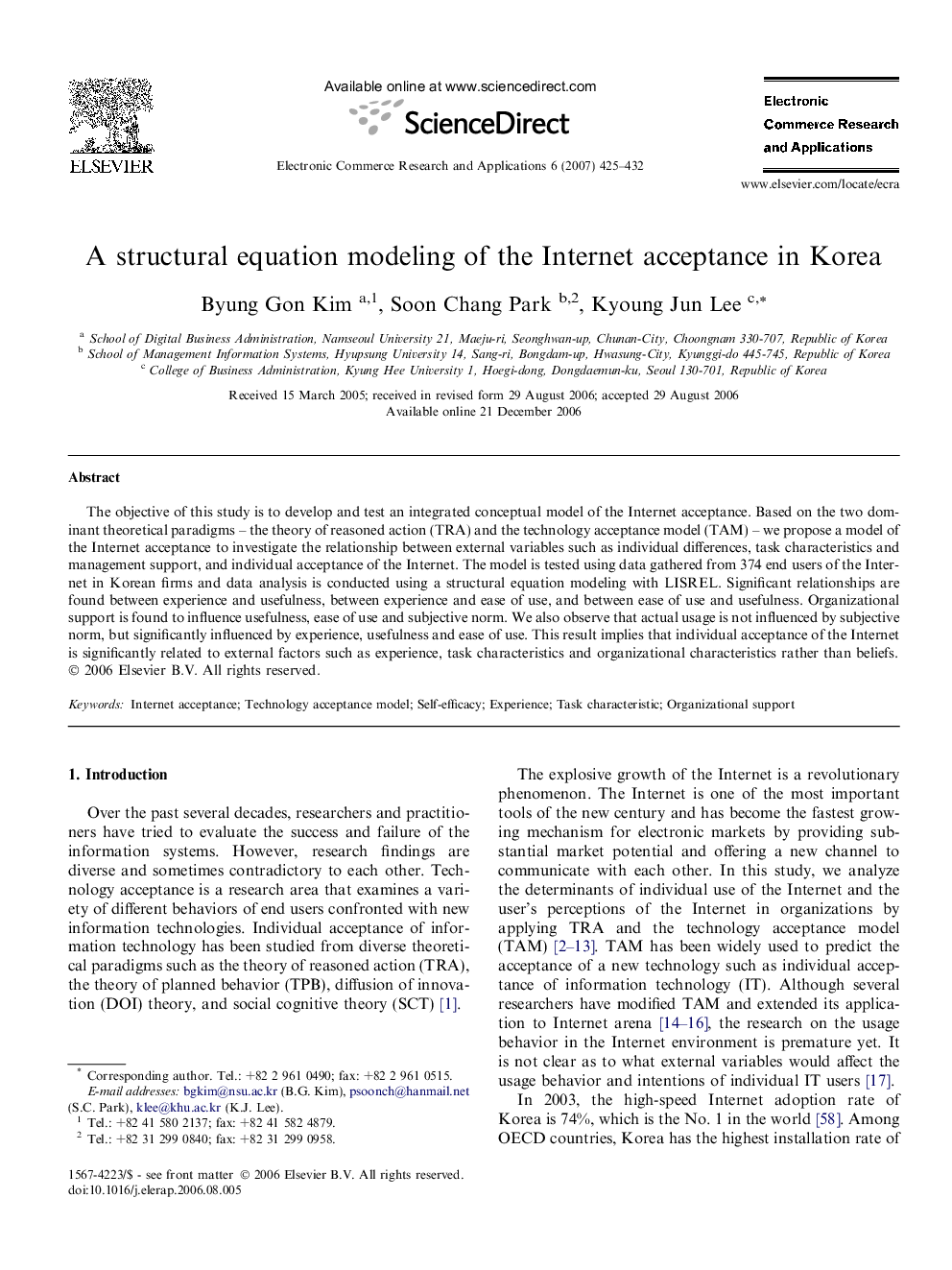| Article ID | Journal | Published Year | Pages | File Type |
|---|---|---|---|---|
| 380009 | Electronic Commerce Research and Applications | 2007 | 8 Pages |
The objective of this study is to develop and test an integrated conceptual model of the Internet acceptance. Based on the two dominant theoretical paradigms – the theory of reasoned action (TRA) and the technology acceptance model (TAM) – we propose a model of the Internet acceptance to investigate the relationship between external variables such as individual differences, task characteristics and management support, and individual acceptance of the Internet. The model is tested using data gathered from 374 end users of the Internet in Korean firms and data analysis is conducted using a structural equation modeling with LISREL. Significant relationships are found between experience and usefulness, between experience and ease of use, and between ease of use and usefulness. Organizational support is found to influence usefulness, ease of use and subjective norm. We also observe that actual usage is not influenced by subjective norm, but significantly influenced by experience, usefulness and ease of use. This result implies that individual acceptance of the Internet is significantly related to external factors such as experience, task characteristics and organizational characteristics rather than beliefs.
